
Latest Arthritis & Rheumatology News and Research
Bisphosphonates may be safe and beneficial for osteoarthritis patients
Bisphosphonates (a class of drugs that prevent the loss of bone density and used to treat osteoporosis and similar diseases) appear to be safe and beneficial for osteoarthritis patients.
Researchers develop a novel strategy to fight osteoporosis
Osteoporosis is the most common age-related bone disease which affects hundreds of millions of individuals worldwide. It is estimated that one in three women and one in five men aged over 50 suffer from osteoporotic bone fractures.
Adults with rheumatoid arthritis have lower type 2 diabetes risk
A recent analysis of a US commercial insurance database found that adults with rheumatoid arthritis had a lower risk of developing type 2 diabetes than other individuals, including those with other types of arthritis.
Lung-related factors may help predict smoker's fracture risk
Smoking has been linked to a higher risk of bone fractures. Researchers have now identified certain lung-related factors that may help to predict an individual smoker's fracture risk.
Gout diagnoses increased dramatically from 1990 to 2017, shows new analysis
The prevalence of gout--a form of arthritis characterized by severe pain, redness, and tenderness in joints--increased across the world at an alarming rate from 1990 to 2017, according to an analysis published in Arthritis & Rheumatology.
Enzyme could play key role in treating cancer, autoimmune diseases in the airway
Findings from a research study, led by scientists at Henry Ford, published in the latest issue of Nature Communications suggest an enzyme could play an important role in the treatment of cancer and autoimmune diseases in the airway.
Interleukin-6 inhibitors appear to be a more effective treatment for COVID-19
New research from Boston Medical Center found that patients experiencing severe COVID-19 symptoms had improved outcomes when administered an Interleukin-6 (IL6ri) inhibitor, sarilumab or tocilizumab, given to mediate severe systemic inflammatory responses.
A quarter of arthritis cases in the U.S. are attributable to excess weight, shows study
A new Boston University School of Public Health study shows that weight loss between early adulthood and midlife lowers arthritis risk, and found no evidence of any persistent risk of arthritis for people who were heavier earlier in life and then lost weight.
New biomarkers may identify Type 1 diabetes patients who could benefit from immunotherapy
Scientists at UCL have discovered new biomarkers, which may identify those people with Type 1 diabetes who would benefit from the immunotherapy drug Abatacept, a finding which could eventually help thousands manage the disease more effectively.
15 young scientists receive Damon Runyon Fellowship Award to pursue cancer research
Grants totaling nearly $3.5 million give early career investigators independence to pursue brave and bold cancer research.
Don’t fall for this video: Hydroxychloroquine is not a COVID-19 cure
Millions of people, including the president of the United States, have seen or shared a video in which a doctor falsely claims there is a cure for the coronavirus, and it's a medley starring hydroxychloroquine.
Study examines glucocorticoid tapering in rheumatoid arthritis
Is the long-term use of glucocorticoids essential in people with chronic inflammatory diseases such as rheumatoid arthritis, or can early discontinuation prevent characteristic side effects?
Lab profiles differentiate MIS-C from severe COVID-19 in children
In the early days of the COVID-19 pandemic, the SARS-CoV-2 virus seemed only rarely to have serious complications in children.
UOttawa's Faculty of Medicine awards 58 clinical research chairs to top clinician-scientists
The Faculty of Medicine has awarded 58 clinical research chairs to top clinician-scientists in a five-year, $40 million investment to drive clinical research excellence and enhance health and patient care.
Anti-inflammatory Tetracycline activity may modulate COVID-19 severity
The current COVID-19 pandemic caused by severe acute respiratory syndrome coronavirus 2 (SARS-CoV-2), seems to attack the human airway epithelium primarily. In severely affected patients, the illness progresses to hypoxemic respiratory failure and acute respiratory distress syndrome (ARDS). The latter is treatable mainly by supportive management.
Identification of MTK1 SAPKKK as new human oxidative stress sensor
In an aging society, various studies are being conducted to explore the relationship between active oxygen and aging-related diseases such as cancer, chronic inflammatory diseases, and metabolic syndrome.
OU physician receives $1.6 million NIH grant for knee osteoarthritis research
By the time they turn 65, at least half of people suffer from osteoarthritis, a condition that impairs quality of life and cannot be slowed by medication.
Human genome may explain the neonatal origins of chronic immune and inflammatory diseases
A study published in the journal Nature Communications has pinpointed a number of areas of the human genome that may help explain the neonatal origins of chronic immune and inflammatory diseases of later life, including type 1 diabetes, rheumatoid arthritis and coeliac disease.
Study seeks to explain the decrease in incidence of hip fractures
In a paper published in the Journal of the American Medical Association Internal Medicine today, researchers showed how analysis of data from the multigenerational Framingham Osteoporosis Study may in part explain why the incidence of hip fracture in the U.S. has declined during the last two decades.
Study finds link between fewer hip fractures and decreases in smoking, heavy drinking
A new study, which analyzed 40 years of Framingham Heart Study data, found an association between lowered rates of hip fractures and decreases in smoking and heavy drinking.
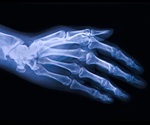
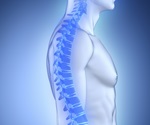
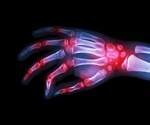
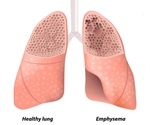
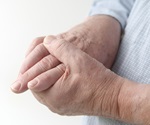









_5e5e39a55cb74b4cacf836ab8acfe044-150x125.jpg)

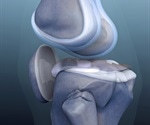



































No hay comentarios:
Publicar un comentario